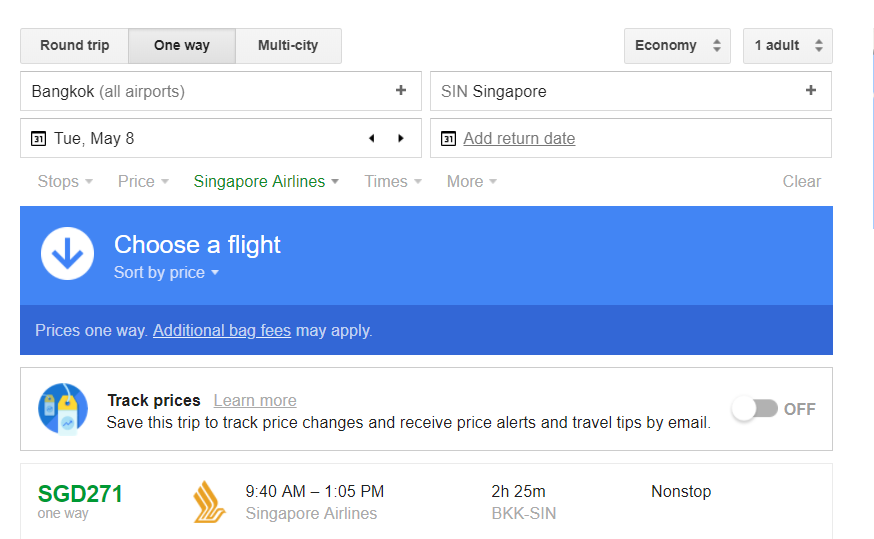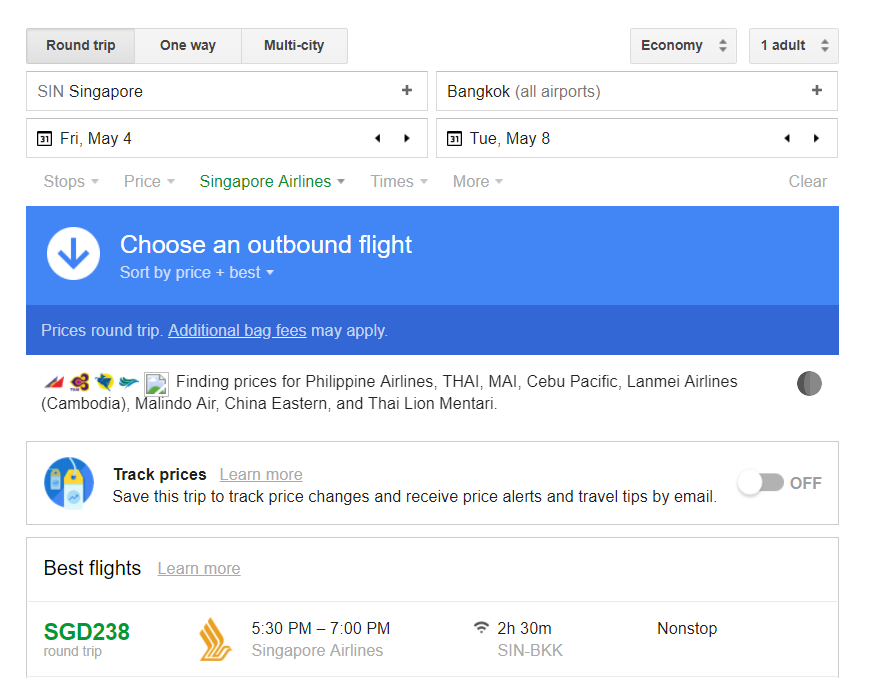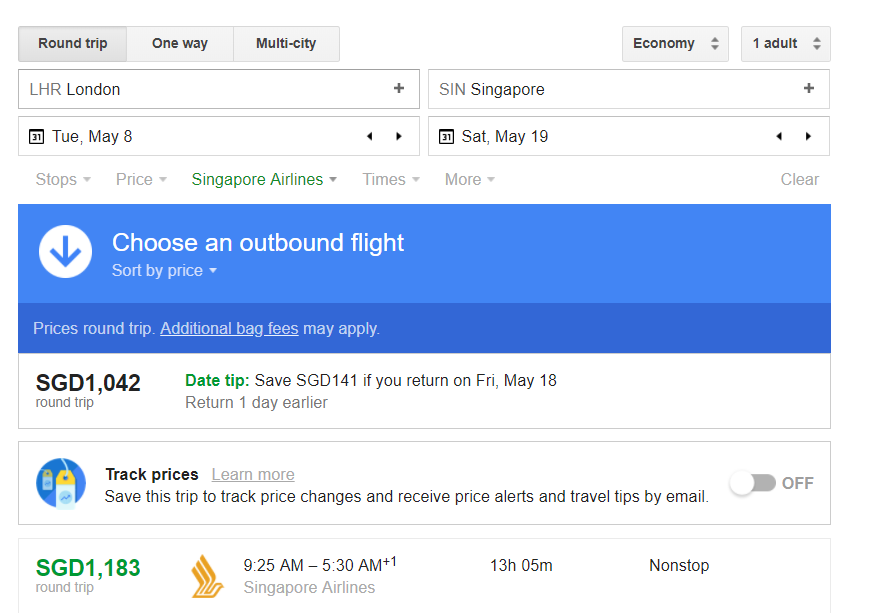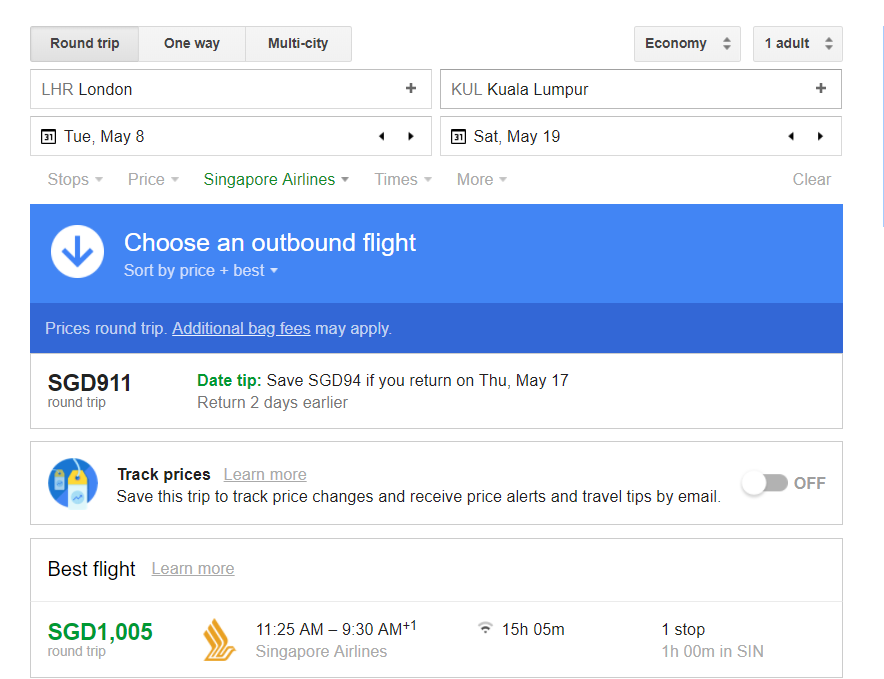A Singapore Airlines customer has taken to Facebook to express his disappointment.
This was after he missed his SQ flight out as he had overslept, and subsequently, discovered his return flight ticket was also forfeited when he thought it was still valid.
As a long-time SQ customer, he wanted to know if the airline could have been more lenient to passengers like him.
To summarise:
- He overslept for his 7.10am flight to Bangkok.
- He called the help desk for assistance in purchasing a new one-way ticket.
- But he found out the combination of the cost of the new ticket, no-show fee and change fees amounted to over S$600.
- On his friend's advice, he bought a new one-way ticket amounting to over S$300.
- However, he found out that he was unable to use the second leg of his return ticket from Bangkok as he missed the flight out, forcing him to buy a new ticket from Bangkok as well.
- He then questioned the logic of not allowing him to use his return ticket.
- He argued that just because he missed his flight to Bangkok should not automatically forfeit his return ticket.
If you missed your flight, the airline will forfeit your other flights
Unfortunately, it is stated within SQ's terms and conditions that if a traveller misses any flight, the rest of his or her itinerary will be forfeited.
According to SQ's condition of carriage:
Para. 6. Cancellation of Onward Reservations made by Carrier.
If a passenger does not use a reservation and fails to advise Carrier, Carrier will cancel or request cancellation of any onward or return reservations.
Basically, once you have missed the first leg of your flight, you will not be able to board your remaining or connecting flights.
This is the same policy with many other international airlines, such as Emirates, Delta and Cathay Pacific.
For example, this is stated by Delta's contract of carriage:
Failure to Occupy Space
If the passenger fails to occupy space which has been reserved for him on a flight of any carrier and such carrier fails to receive notice of the cancellation of such reservation prior to the departure of such flight, or if any carrier cancels the reservation of any passenger in accordance with paragraphs of this rule, such carrier will cancel all reservations held by such passenger on the flights of any carrier for continuing or return space, provided such carrier originally reserved the space.
Why though?
Although this may not make a lot of sense to most travellers, this rule is almost universally adopted by major carriers worldwide.
This is because it protects the airline from consumer attempts to game the system and manoeuver around the complex pricing structures of the airline industry.
Here are two major reasons why airlines do this.
Using only part of the ticket
One-way tickets are often more expensive than a return ticket. For this reason, some people may choose to buy a return ticket and simply fly one leg of the journey.
For example, if a traveller needs a one-way ticket from Bangkok to Singapore, it costs S$271 on Singapore Airlines. However, it only costs S$238 to fly a return journey from Singapore to Bangkok.
The traveller will actually save S$33 to buy a return ticket rather than a one-way ticket, if SQ allowed buying two-way tickets and only flying on the return journey.
 Image via Google Flights
Image via Google Flights
 Image via Google Flight
Image via Google Flight
Hence, SQ and other airlines implemented this rule to prevent savvy travellers from booking cheaper return flights with no intention of taking the first flight.
This is important as these bookings will affect airline revenue, since many flights will end up with empty seats.
From a traveller's point of view, this is also important as too many "phantom" bookings will cause flights to be fully booked even when there are actually empty seats on board.
[related_story]
Hidden-city ticketing
In essence, airline ticket pricing is rather complex and not determined only by, say, distance of the flight.
The price of a ticket can be lower travelling A-B-C, rather than merely A-B. Although the former involves more flights, the airline is not interested in looking at the number of flights when it determines the fare.
Rather, it looks at each market and decides how much the fare should be.
For example, a direct return from London to Singapore on SQ costs S$1,181.
However, a direct return to Kuala Lumpur costs S$1,003.
 Image via Google Flights
Image via Google Flights
 Image via Google Flights
Image via Google Flights
Thus, if SQ allowed you to miss a flight with no consequences, travellers can simply buy the return ticket to Kuala Lumpur, get off at Singapore, and have no intention of actually going to Kuala Lumpur, saving S$178.
Locking you in as a customer
And another practical reason airlines sell you two-way tickets instead of just one-way is to lock you down as a customer.
Because by making one-way tickets available laissez-faire, travellers will shop for the cheapest tickets and most likely end up flying on two or more multiple different airlines departing from and arriving at host country.
This is also why one-way tickets are usually priced more expensively to deter buyers -- unless buying them is absolutely necessary, such as emigrating to another country to avoid political persecution and never to return, for example.
What should I do if I miss my flight?
Most airlines will grant a waiver for special cases and exceptions, such as being sick or being involved in an accident.
You may then be allowed to board the next available flight or be granted a chance to change your dates of travel.
However, these need to be negotiated on a case-by-case basis and relevant documents may be required as proof.
In any case, it is important to contact the airline directly and discuss your options, in order to avoid nasty surprises.
Now you know.
Top image via Singapore Airlines
If you like what you read, follow us on Facebook, Instagram, Twitter and Telegram to get the latest updates.
